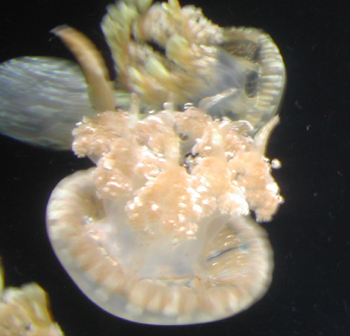The tradition in the Free-Ride family (passed down from my family) is that, on Christmas morning, no one gets to start opening presents until everyone is awake and ready to start opening presents. It doesn’t matter how early the kids are awake. Until the last sleepy parent is ready, you just have to wait.
Santa does leave filled stockings on the foot of each bed, so there’s something to keep you occupied, but that only keeps you satisfied for so long.
The fact that we are visiting the grandparents-who-lurk-but-seldom-comment introduces an interesting complication to the power struggle between sleepy parents and impatient children.
Author Archives: admin
Not a creature was stirring
Given the available options, would you be stirring?
You could, after all, be sunbathing on the beach.

Of course, you might have to haul yourself out of the waves every now and again.

Can you go home for the holidays?
Having filed grades and extricated myself from the demands of my job, at least temporarily, I have come with my better half and offspring to the stomping grounds of my better half’s youth.
Well, kind of.
Spotted jellies.

Here are some more jelly pictures from my most recent visit to the Monterey Bay Aquarium. Today, the Spotted jelly (Mastigias papua).
I really like the coloration of these critters, as well as the way that they swim together in patterns that look like a complicated water ballet.
According to the Monterey Bay Aquarium Online Field Guide, those coffee-with-cream colored spots are due to tiny algae called zooxanthellae growing in the jellies. The algae aren’t just cosmetic — they also produce nutrients that feed the jellies, supplementing their zooplankton diet.
Green gingerbread construction.
As I mentioned earlier, the sprogs and I decided to try our hands at building an entry for the contest to build a gingerbread house using sustainable building design practices. We read up on principles of sustainable design and stocked up on unsulfured molasses and powdered sugar.
Here’s what we did and what we learned.
Friday Sprog Blogging: co-evolution
Have you ever tried to have a conversation about one thing and found that, almost immediately, the conversation veered someplace else entirely? This is one of those.
I had heard the horrifying news that there are high school teachers — in our pretty good school district — who actually tell their students that it’s OK to cut and paste stuff from the internet into their papers without quotation marks or citation, and that Wikipedia is a great source of authoritative information (which, again, one need not cite, seeing as how the internet is like our shared brain).
My response was to launch a preemptive strike on the sprogs’ understanding of proper credit and critical evaluation of sources. It was during our discussion of the latter issue that the Free-Ride offspring seized control and took the conversation in a more interesting direction.
Dr. Free-Ride: You guys already know that there are some books that are good sources of information and some that aren’t. If you had to write a report on undersea life, you could probably get information from —
Elder offspring: One of our science books or guidebooks.
Dr. Free-Ride: Or maybe even an online source like the Monterey Bay Aquarium Online Field Guide, since the aquarium is pretty serious about accurate information. But would you want to use the giant squid book?
Younger offspring: No, because they say it’s dark at the bottom of the ocean because of curtains, and that’s not why it’s dark there. Sea plants and stuff block the sun.
Dr. Free-Ride’s better half: Well, it’s also really deep.
Dr. Free-Ride: It’s a long way for the light to travel.
Elder offspring: But there are creatures like lantern fish that can make their own light so they can see down there. I think it’s called an adaption.
Dr. Free-Ride: An “adaptation”, actually. And I’m pretty sure there are other fish that don’t even use vision to get along. That’s another adaptation to an environment where there’s not much light.
Celebratory end-of-semester meme.
The grades are filed! I have officially dodged the bullet of delaying the family’s get-away with my incessant grading (since it turned out to be cessant, I guess).
It seems only right to mark the occasion with a meme — the “seven random things about me” meme, for which I have been tagged twice.
Here are the rules:
The ethics of performance enhancing drugs in academe.
In the 20/27 December 2007 issue of Nature, there’s a fascinating commentary by Cambridge University neuroscientists Barbara Sahakian and Sharon Morein-Zamir. Entitled “Professor’s little helper,” this commentary explores, among other things, how “cognitive-enhancing drugs” are starting to find their way into the lifestyles of professors and students on university campuses, a development which raises some interesting ethical questions.
The questions are sufficiently rich here that this post will just serve as my first attempt to get some of the important issues on the table and to open it up for discussion. (There will also be an ongoing discussion of this commentary on the Nature Network website, in case you’re interested.)
Department of poetic justice.
Grades are due this Friday. Last Friday, the grader assigned to one of my courses was supposed to get me the grades for the online reading discussions that he was weeks behind on grading.
He didn’t.
Year-in-review meme.
When I partook of this last year, I thought it was a one time thing. But by golly, John Lynch seems to have established this meme as an annual tradition, and I kind of like traditions.
The rule: post the first sentence of the first post for each month.
